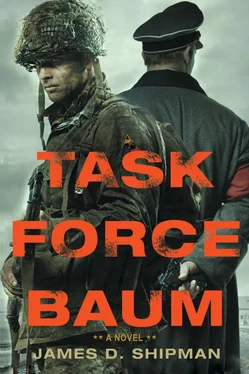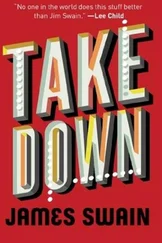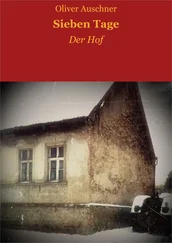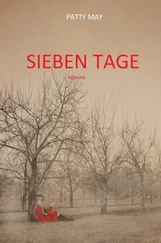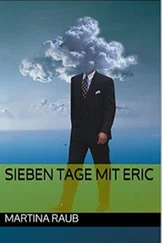The soldier chuckled in return. “It’s better than smelling corpses.”
“Amen, mein freund .”
Koehl nodded farewell and hopped up the first few steps.
“Sir, are we heading back into action?”
Koehl stopped, looking down at them. “I hope not, at least for now. But something is barking out there.”
“Is it that schweinhund Patton?”
Koehl grunted. “Looks like it. But I’ll know more in a few minutes. You gentlemen get some food down, then catch a nap. Understand?”
They nodded, returning to their bread. Koehl kept tromping upstairs, a smile on his face. He loved the privates. Their only worry in the world was staying alive and when their next meal would be. Oh, if it could all be so simple…
He climbed the narrow wood-paneled stairway and turned the corner to a long, dimly lit hallway dotted with numbered rooms. He walked along, trying to remember where the colonel had his staffing quarters. He’d been here only a couple of times since the last retreat had required them to relocate yet again. How many times have we had to move? he mused, his mind walking through the hotels and villas in Russia, France, and now Germany. And all in the wrong direction .
He paused at a door. Room 214. He thought he recognized the number. He knocked sharply and heard a muffled reply. Now he was sure. Nobody could mistake the colonel’s booming voice. He turned the knob and entered.
Oberst Helmut Hoepple lay on his hotel bed, feet crossed and a pipe puffing out prodigious columns of smoke. The room was clouded with the thick, sweet smell of the pipe tobacco that reminded Koehl of his father. Was that why he’d always appreciated the colonel? Perhaps, although there were other reasons as well.
“ Ach , guten abend, Hauptmann ,” said Hoepple, smiling between puffs. “Come on in. I’ve got something for your rather specialized talents.”
Koehl was puzzled. What did the colonel mean? “I assumed when I received your message there was a breakthrough.”
“ Ja . I think so. But I don’t know yet for sure.”
“Where?”
“Come over and I’ll show you. Don’t mind the smoke. It’s the fog of war!” Hoepple laughed jovially, and his voice thundered out through the room, threatening to knock the pictures from the walls.
Koehl stepped to the bed, standing over his colonel. He’d never seen him lying down before, and the sight felt unnatural for some reason. The colonel pointed a sharp finger on the map.
“Schweinheim,” noted Koehl.
“Just so.”
“Makes sense. Use the highways. We have anything there?”
“A sprinkling of Volkssturm . They won’t last long.”
Volkssturm. Koehl thought of the old men and boys Hitler was calling up to fight in the last defense of the fatherland. No training, little equipment. The children died in droves—the elderly deserted at the first sniff of danger. They were virtually useless. “What do we have to bring up?”
“Not much more. I’ve been on the phone to Division for the past hour. They tell me we’re it for now. They can’t bring anything else up to stop them.”
Koehl was shocked. Was it really that bad? “Surely that’s just talk. Where are the reserves?”
“Apparently we are the reserves, Hauptmann .”
“That’s insane. I’ve got six tank destroyers left. I don’t even have the four they’ve promised to replace for me. I’m down to half ammunition, and I don’t have the petrol to maneuver. What do you want me to do?”
“Don’t worry about the petrol. I have enough here to get you by. I can get you some shells as well.”
“And my replacement vehicles?”
The colonel shook his head. “You’ll have to make do, Haupt-mann .”
Koehl wanted to protest, but he knew it wouldn’t do any good. “Where do you want me to go?” he asked.
Hoepple traced his fingers down the map. “We are here. The Americans are probably heading toward the Main, ja? No point in trying to catch them in the open before the river. You’ll either be exposed by fields or find that the roads are too narrow with the hills and trees. Too much or too little. I think you should set your defenses up here,” he said, pointing to the map.
Koehl looked at the location and the terrain, the river, the bridge. He nodded. “That’s a good spot. What do you want me to do when I get there? I can’t stop a whole damned army.”
“I don’t expect you to. Just delay them. Do what you can. Nobody wants you dead, Hauptmann .” He looked up. “As a matter of fact, I want you to do everything you can to avoid significant casualties. This war is almost over, and I want to visit you at your parish for years to come.”
Koehl was surprised. He’d never heard him talk like that before. Still, there was business to attend to. “What are my orders then, sir?”
“Take out the lead tanks. Blow up this bridge. Slow the bastards down for a day or two. If we don’t, the Führer will have us all up against a wall. We’ve got to make a fight of it.”
“If we stop them too well, the damned Russians will be here. We should be joining the Americans and fighting the Bolsheviks,” observed Koehl.
“I agree with you, Hauptmann , but orders are orders, and one war at a time. The Americans don’t understand our communist friends yet. They will learn soon enough.”
Koehl studied the map again. “You want me to take out the bridge? I don’t have explosives or the men to do it.”
“Don’t worry. I’ll get a company of infantry down to support you. They’ll have a few engineers with them.”
“Any air support?”
The colonel laughed. “You are optimistic, my friend. When’s the last time you saw one of our friends in the Luftwaffe overhead.”
Koehl smiled in return. “One can always hope.”
“If you hear an airplane, you better duck. I might get a spotter plane up there to track the advance, but no fighters or bombers. They’re all trying to stop the damned Eighth Air Force from wiping out what’s left of our cities. That assumes there is anything left of them that’s worth hitting.”
“If the Americans get air support over our little trap, we won’t last a minute in there.”
“We can’t help that. Pray for clouds and skilled engineers, my friend. And you’d better come home safe!”
Koehl saluted and turned to leave.
“Just a second, Hauptmann . You seem to be missing someone. Where is this mysterious sister of yours? I was expecting to see two people enter my room tonight.”
“She refused to come, sir. I was going to stop her, but your message came at the same time. I’ll collect her when this thing is over.”
The colonel chuckled. “Another stubborn Koehl. I’m sure she’ll be an asset in our office.”
“I’ll report back when I’ve stopped the advance.”
“ Gott protect you, Hauptmann .”
“ Danke, Herr Oberst .”
Koehl saluted again and left the room. He would have to hurry if he was going to get his tank destroyers in position before the Americans arrived. He wanted to go after Gerta, but there wasn’t time. He’d have to arrange for transportation for the petrol and the shells. He also had to track down the infantry company. A school of details swam through his mind. One object dominated everything else. Survival. I must survive. I must protect my sister and my crew. It’s almost over. This is no time to die.
Task Force Baum
Schweinheim, Germany
March 26, 1945, 2300 hours
They waited in the darkness, a long line of vehicles and men parked helter-skelter, illuminated periodically by the flickers and flashes ahead of them. Hall strained to check his wristwatch: 2300 hours. He swore under his breath. They were already far behind schedule. The task force, according to the plan, was to break through the front crust of the German line by 2200 hours. Abrams had designated two armored companies to blow a hole through for them. Resistance was anticipated to be light or nonexistent. Yet here they were, sitting back in the darkness, waiting in vain for a signal that the way was clear.
Читать дальше
